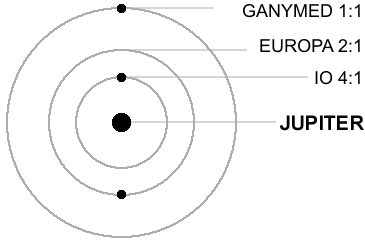Well, I think that this is easily the weakest story so far. Now, it's not bad. As a pioneer story in space, it's generally well-conceived and engaging. I'll also give it props for using more grim and mature themes than the earlier stories, and for doing a fine job of that as well.
I hadn't realized it, but this story was serialized in Boys' Life magazine. Not sure if it was hand to Scribner's after that, but I assume so. The book is full of references to scouting, most of which have little connection to the main plot. So it becomes a bit distracting. There's a larger cast of characters than in the earlier novels, and while I enjoyed many of the characters, at some point the roster outgrew the capacity of the story to maintain proper focus and flow. Farmer in the Sky is still well worth the read, but I couldn't get into it as much as I did with Space Cadet and Red Planet.
I wish that Heinlein had given us more time for the Hank Jones character to act as a proper foil to Bill. Also, I can't get over this image I found on Wikipedia.

A major event in the book involves a moonquake on Ganymede triggered by the alignment of Jupiter's inner moons. Heinlein apparently wasn't aware that the alignment he described was impossible. Seems like something that would have been known to astronomy as a whole even back in 1950. I'd think it would be amusing to see what response, if any, Heinlein had in his own lifetime to this fact being pointed out. Anyway, let's get to some "Critical Reception."
Groff Conklin wrote that although Farmer in the Sky was "conceived as a novel for 'adolescents' ... this book is also one of the best of the month's output in science fiction for adults ... an adventure story with an unusual amount of realism in its telling. It is not childish".
I deduce that much of this is owed to the descriptions of devastation in the aftermath of the aforementioned moonquake, including the death of a family member and the main characters' realistic response to it.
Boucher and McComas named Farmer "just about the only mature science fiction novel of the year [1950]", describing it as "a magnificently detailed study of the technological and human problems of interplanetary colonization."
I concur with that characterization.
Damon Knight found the novel "a typical Heinlein story ... typically brilliant, thorough and readable."
Sure. Like I said, this one is not bad. I'd even say it's good. But Space Cadet and Red Planet are great, and this one has to follow them. Nevertheless, it is brilliant.
P. Schuyler Miller recommended the novel unreservedly, saying that Heinlein's "minute attention to detail ... has never been more fascinatingly shown."
I mean, I'm not going to dispute these comments. I'd have thought that there'd be better reception for the two previous books. That's all.
Surveying Heinlein's juvenile novels, Jack Williamson noted that Farmer in the Sky "has harsh realism for a juvenile." He described it as "a novel of education" where the protagonist "tell[s] his own story in a relaxed conversational style."
Again, I apparently agree with the critics. "Relaxed conversational style" is a good way to describe Bill's narration.
This concludes the four books I purchased bundled together in the Four Frontiers omnibus. The next book in sequence should be the 1951 novel, Between Planets. Well, I ran into a problem. My fault. I thought that I'd bought all of the books. To my surprise, when I went to open Between Planets, I found that I was actually opening a nonfiction astronomy book from 1956 (technically, a revised edition of a book originally published in 1941) by Fletcher G. Watson: Between the Planets. Articles are critical. A copy of the correct book is on its way and I should receive it next week. In the meantime, I've already started the 1952 book: The Rolling Stones. Ordinarily, I'd be bummed out to be reading the books out-of-sequence. But I have already read Between Planets and it's actually one of my favorites. I figure if I'm going to have this sort of mishap, at least at least it's with a book I'd already read anyway. I'm sure I'll have high praise for Between Planets, either before or after I post an entry here for The Rolling Stones.
